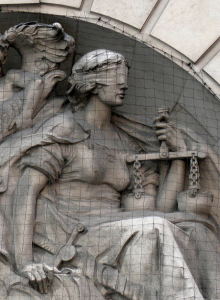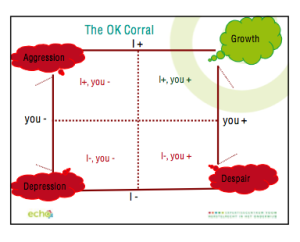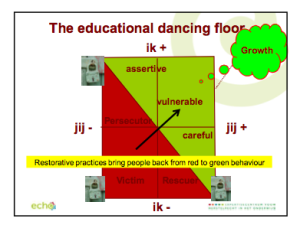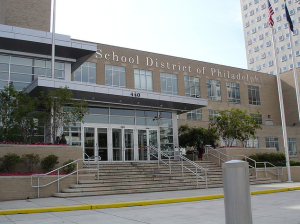News & Announcements
 Lady Justice from Flick Creative CommonsIn this recent post from the West Berkshire (UK) Council, officials report a nearly 50% reduction in the number of youth entering the youth justice system year over year. The article reads:
Lady Justice from Flick Creative CommonsIn this recent post from the West Berkshire (UK) Council, officials report a nearly 50% reduction in the number of youth entering the youth justice system year over year. The article reads:
A fall of 48.7% is shown between January and December 2011 (compared with same period for 2010). The decline for the rest of England averages 19.3%. The team is a multi-agency partnership between Thames Valley Police, National Probation service, the Berkshire Health Care Foundation Trust and West Berkshire Council.
The Team attributes two major factors to this impressive figure. Firstly, in 2001 the partnership established an Early Intervention Team to work with young people between the ages of 8 and 15 years focussing on preventing them offending in the first place, or to intervene at an early stage to halt further offending. This supported other services developed across the West Berkshire area to support vulnerable children, which have made them less likely to offend.
Here is the second in a series of pieces about IIRP’s 15th International Conference, Building a Worldwide Learning Network, that took place August 1-3, 2012. I’ll be writing about some of the great sessions I attended, beginning with one titled “Restore with a Smile: The Provocative Approach” presented by Jan and Laurien Ruigrok from the Netherlands.

As you might be able to tell from the title of this workshop, Jan’s approach was unconventional. When I arrived at the session, everyone was seated in rows of chairs, but once it began the chairs went to the side and the room was turned into a play space. Jan said that Rule #1 of the provocative approach is: “Get yourself into the laughing state.” So when someone came in the room a little bit late, Jan asked us all to jump in the air with our hands held high in imitation of the well-known Masai jumping greeting. We were laughing by that point.
Jan also showed us his version of the social discipline window, which he’d modified slightly (see figure). He put it in terms of status and self-esteem. If both “I” and “you” believe ourselves low in status, that puts us in a “depressed relationship.” If “I” put myself above “you” then it’s an aggressive relationship. If “I” put myself below “you” that puts me in a state of despair. But if both of us have a positive view of ourselves, that puts us in the position of growth. That’s the box we normally call the “with” or restorative box.

An addendum to Friday's post "Followup: Philadelphia revises conduct code."
From the Notebook's "SRC adopts revised student code of conduct by Dale Mezzacappa, which places more emphasis on the adoption of restorative practices by the Philadelphia School District:
Students and organizers from the Campaign for Nonviolent Schools said that they felt the new code was a good first step but said it could still be improved – especially by putting more emphasis on “restorative practices” rather than punishment.
An August 7, 2012 piece, "Researchers Sound Alarm Over Black Student Suspensions," at EdWeek by Nirvi Shah and Lesli A. Maxwell begins:
Nearly one in six African-American students was suspended from school during the 2009-10 academic year, more than three times the rate of their white peers, a new analysis of federal education data has found.
 via Flickr Creative Commons User: It's Our City[Today Kristen Graham in the Philadelphia Inquirer writes that the Student Reform Commission approved major revisions to the student conduct code: "The new policy is the most extensive set of revisions to the student rules in years." The policy "gives principals more latitude in meting out discipline and means that students cannot be suspended for infractions such as using profane language or failing to follow a dress code."
via Flickr Creative Commons User: It's Our City[Today Kristen Graham in the Philadelphia Inquirer writes that the Student Reform Commission approved major revisions to the student conduct code: "The new policy is the most extensive set of revisions to the student rules in years." The policy "gives principals more latitude in meting out discipline and means that students cannot be suspended for infractions such as using profane language or failing to follow a dress code."
Incoming Superintendent William J. Hite, Jr. is quoted in the article as saying, "We can't suspend our way to higher student achievement. We can't arrest or suspend our way to safer schools."
View the conference schedule and presentation materials (where provided).
Putting Theory into Practice: The Restorative Way
This conference will spotlight the City and County of Swansea, which is bringing restorative practices training and services to those who work with children and young people in the area. Teachers, police, social workers and a variety of agencies throughout the city have recieved training programs developed by the International Institute for Restorative Practices.
Plenary speakers include Jack Straw, Chief Executive of the Swansea Council; Lizzie Nelson, Director of the Restorative Justice Council; Marian Quinne, CEO, CDI West Tallaght, Dublin, Ireland; and Val Keitch, Manager, South Somerset Community Justice Panel.
Last week Lehigh Valley News reported on the IIRP's 15th World Conference. They focused on Steve Korr's plenary and related his talk to implementation of restorative practices in two Lehigh Valley School Districts, Allentown and Bethlehem. They quoted Korr below:
The Truth and Reconciliation Commission of Canada invites the public – in person or via webcast – for an event on August 14, 2012, 7:30 to 9:30pm (ET), Harbourfront Centre’s WesJet Stage, 235 Queens Quay West, Toronto, Ontario, CANADA.
The evening will feature a keynote address by TRC Chair Justice Murray Sinclair, drummers and dancers from the Aboriginal and Black communities and an Authors’ Dialogue moderated by veteran broadcast journalist, Shelagh Rogers.
Greetings from Day Three of the IIRP's 15th World Conference, "Building a Worldwide Restorative Practices Learning Network."
Jean Schmitz, Founder and Director of the Latin American Institute of Restorative Practices presented the day's only plenary session, Restorative Practices in Neighborhoods in Lima, Peru.
He began by asking: Why are victims poorly served and re-victimized by the justice system? He then talked about how he and his colleagues are working to change this condition by establishing a "restorative zone" in Lima, Peru, with support from the city's mayor, Susana Villarán.
